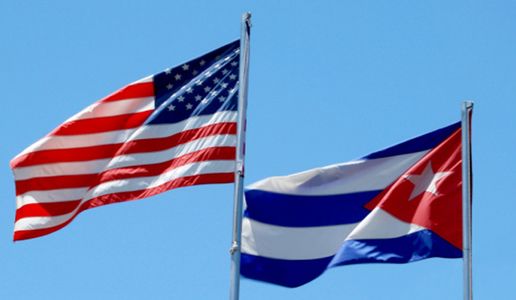Hare Publishes Op-Ed in HuffPost on U.S.-Cuba Relations
Amb. Paul Webster Hare, Senior Lecturer at the Frederick S. Pardee School of Global Studies at Boston University, published a recent Op-Ed on how United States President Donald Trump and his fledgling administration should approach relations with Cuba.
Hare’s Op-Ed, entitled “How Trump Should Approach U.S.-Cuba Policy,” was published by The Huffington Post on June 6, 2017.
From the text of the article:
The Trump Administration is about to reset U.S. Cuba policy. The right policy needs to understand what might be about to happen in Cuba. After 59 years a day in February 2018 may be the last promise of the Cuban Revolution. That is when Raul Castro has said he will step down – at least as President. After that most assume Cuba will remain wedded to its Revolution, the one party state, the military-run conglomerates, universal social programs and the minimization of the individual. It seems that 8 months off from the Post Castro (PC) era Cubans themselves have little to be excited about.
The government continues to be fulsome about its legacy. But the Revolution’s reality for most Cubans today is an increasingly unequal form of poverty. Education and healthcare remain free but the economy works for only the Castro family, military elites and now some Cuban Americans. Neither Raul they nor the designated successor Diaz-Canel have communicated a brighter future for the individual Cuban.
Reforms have stalled and over 70 percent still work for the state on $25 a month income. Media remains boring and sycophantic but the internet is now arriving. And change is increasingly happening despite the government’s rearguard actions to counter it. Change agents are arriving in the form of flash drive bundles of information and hundreds of thousands of visiting Cuban Americans, many of whom have made a lot of money the American way. The Trump Administration should note. With that backdrop some aspiring Cuban politicians will embrace a new agenda. Cuba is a society without major ethnic or religious tensions. Race is a factor and Afro-Cubans are among the poorest. But decades of universal controls have produced order and discipline and the Cuban workforce is well-educated, eager to seize new opportunities. The dismal pay levels mean that $100 a month, even for professionals, would be a significant improvement.
Amb. Hare teaches classes at Boston University on Diplomatic Practice, Arms Control, Intercultural Communication and on Cuba in Transition. In Spring 2016 he will offer a new class on Public Diplomacy. His novel, “Moncada – A Cuban Story”, set in modern Cuba, was published in May 2010. His book “Making Diplomacy Work; Intelligent Innovation for the Modern World.’ was published in early 2015.
